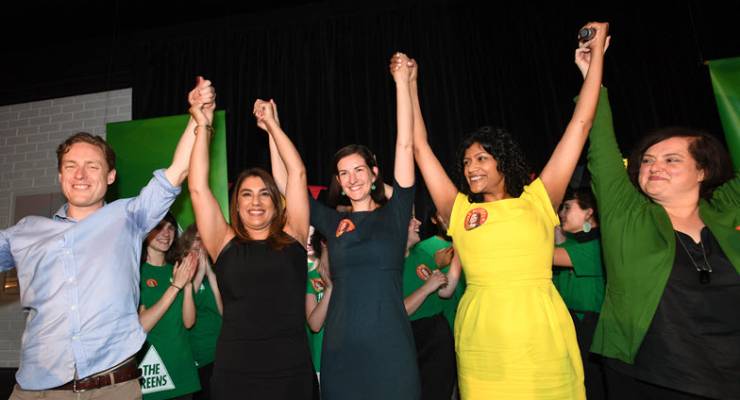
There was some discussion in the media recently on the fact that results of the same-sex marriage plebiscite showed a gap between the opinions of Liberal Party voters and most of their representatives. Safe Liberal seats almost all returned big majorities for Yes, even when their MPs were strongly of the opposite opinion. In the most striking case, Tony Abbott’s electorate of Warringah voted 75% in favor of marriage equality.
There’s been less attention paid to the revelation of another gap between the official Liberal Party attitude and the views of its supporters on another issue, that of giving preferences to the Greens.
Since Ted Baillieu started the practice in the 2010 Victorian election, the Liberals have officially directed preferences to the ALP ahead of the Greens in seats where the two are competing. Typically, more than 70% of Liberal voters follow the how-to-vote card, giving an invaluable boost to Labor.
But last Saturday, in a by-election in the Victorian seat of Northcote, there was no Liberal candidate, so Liberal voters were left to their own devices. Some just stayed home, but it looks as if a significant number turned out and voted for the Greens, either directly or via preferences from one of the independents.
The graph below shows the two-party-preferred swing to the Greens at each polling place on Saturday, plotted against the strength of the Liberal vote at the last state election. The correlation is unmistakable.

No doubt there were other things going on in Northcote as well. But it seems that part of the explanation for the Greens’ victory — they took the seat from Labor with a swing of 11.7% — is the fact that Liberal voters prefer them to Labor rather more than their leadership (at least officially) would like.
Nor is this surprising. In places like Northcote, Greens and Liberals are pretty obviously competing for the same sort of voters.
Part of this is about class: Liberal and Green voters are more affluent, less likely to identify with the traditional working-class unionist ethos of Labor. Demographic change in the inner suburbs is making Labor’s task harder.
But there’s more to it than that. In these suburbs, Labor is the establishment, and its machine politicians are seen as complacent and out of touch. Despite their different perspectives, Greens and Liberals both appeal by contrast to the educated, the idealistic and the socially engaged.
There’s some consolation here for Labor, in that it reinforces its claim that the Greens are fundamentally a middle-class party (although the fact that this critique is made by tertiary-educated apparatchiks rather than factory workers tends to diminish its force). For the Liberals, however, their relationship with the Greens is a big headache.
The main game for Liberal leaders is to beat the ALP, but — as the same-sex marriage vote showed — they also need to placate their own ideological warriors. And they want to do everything they can to sow dissension between Labor and the Greens, in the hope of limiting the flow of preferences between them that threatens to unseat Liberal MPs.
At last year’s federal election, News Corp was telling Liberal voters of middle-suburbia that the Greens are crazed Marxist extremists, but the narrative has not universally taken hold. More than ever, the Liberals need to work out just what sort of party they want to be.
*Charles Richardson lives next door to Northcote, and he handed out how-to-votes and scrutineered for the Greens candidate on election day.








Crikey is committed to hosting lively discussions. Help us keep the conversation useful, interesting and welcoming. We aim to publish comments quickly in the interest of promoting robust conversation, but we’re a small team and we deploy filters to protect against legal risk. Occasionally your comment may be held up while we review, but we’re working as fast as we can to keep the conversation rolling.
The Crikey comment section is members-only content. Please subscribe to leave a comment.
The Crikey comment section is members-only content. Please login to leave a comment.